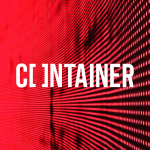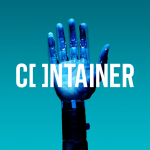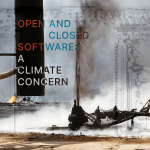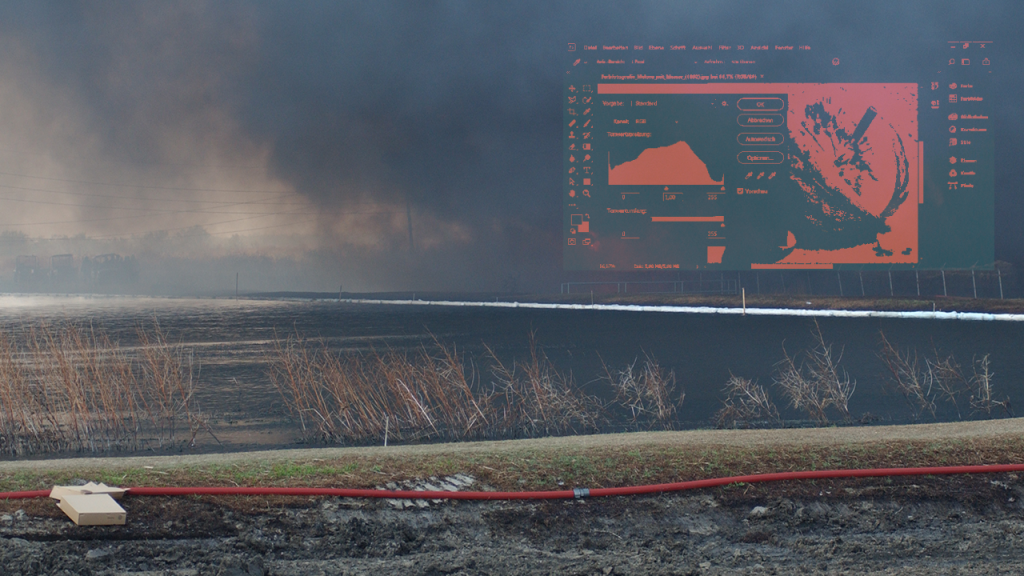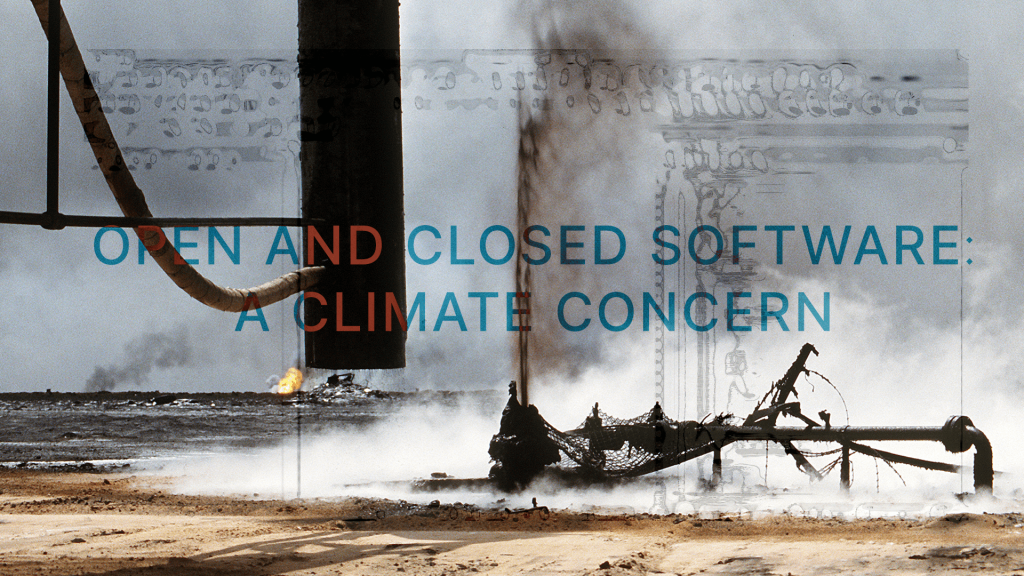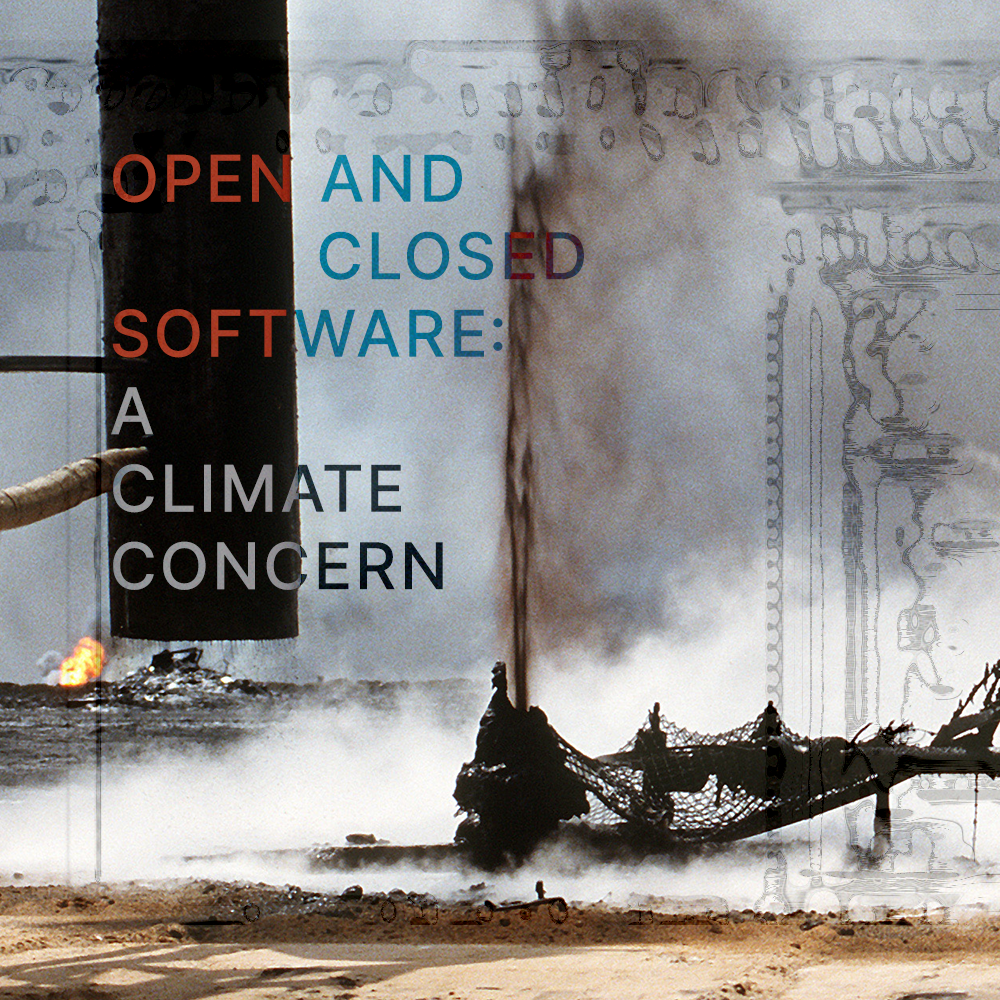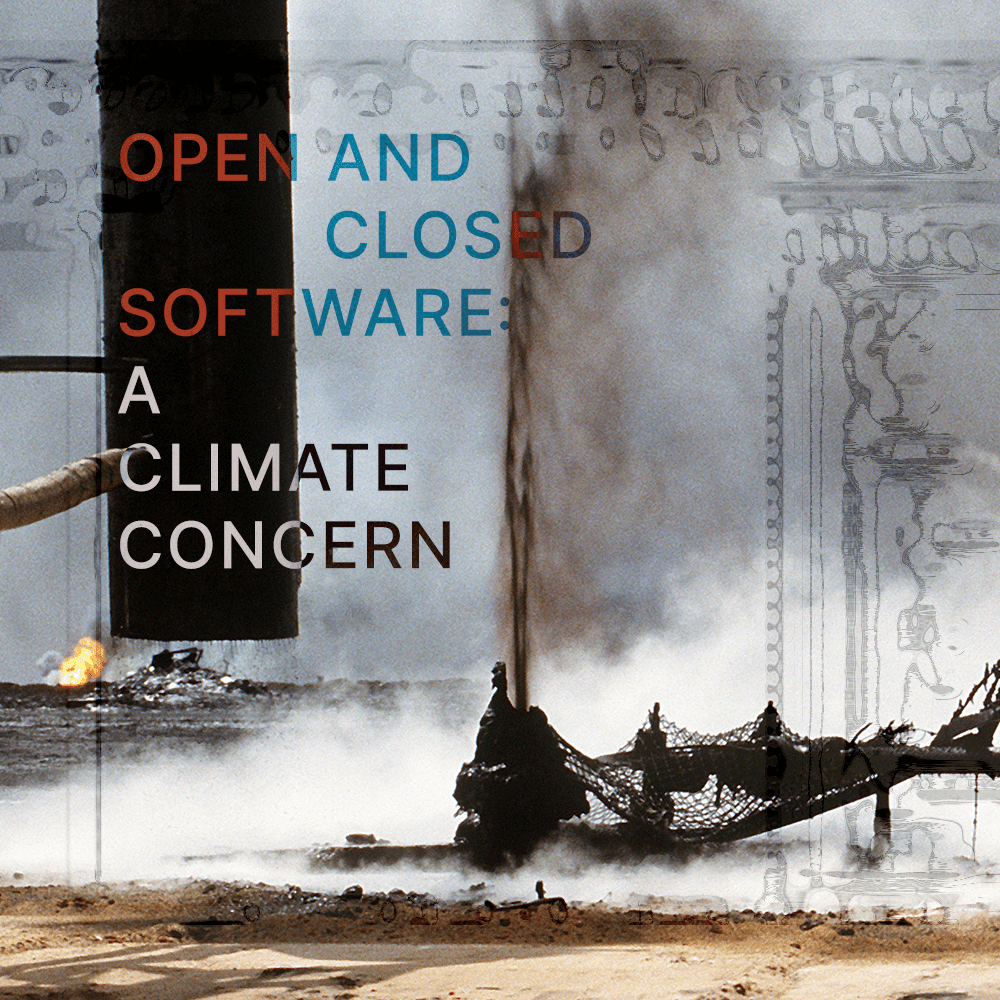Imagine that the fossil fuel industry is suddenly unable to continue with the business-as-usual extraction of oil and gas – all because of a concerted effort of climate-conscious software developers.
This is the scenario that the authors of the Climate Strike License (CSL) had in mind when in 2019 they called on their developer peers to make it impossible for fossil fuel companies to use software by adopting the new license. The CSL authors explain that despite the climate crisis, oil production is still expanding, and this is enabled by critical software that automates and optimises oil production. Much of the software used by oil companies builds on open source code that many communities of developers contribute to, and is used in a diverse range of projects. At least in theory, developers could prevent fossil fuel companies from taking advantage of open source work by putting in place explicit restrictions on who would be able to use the code – for instance by adopting the CSL.
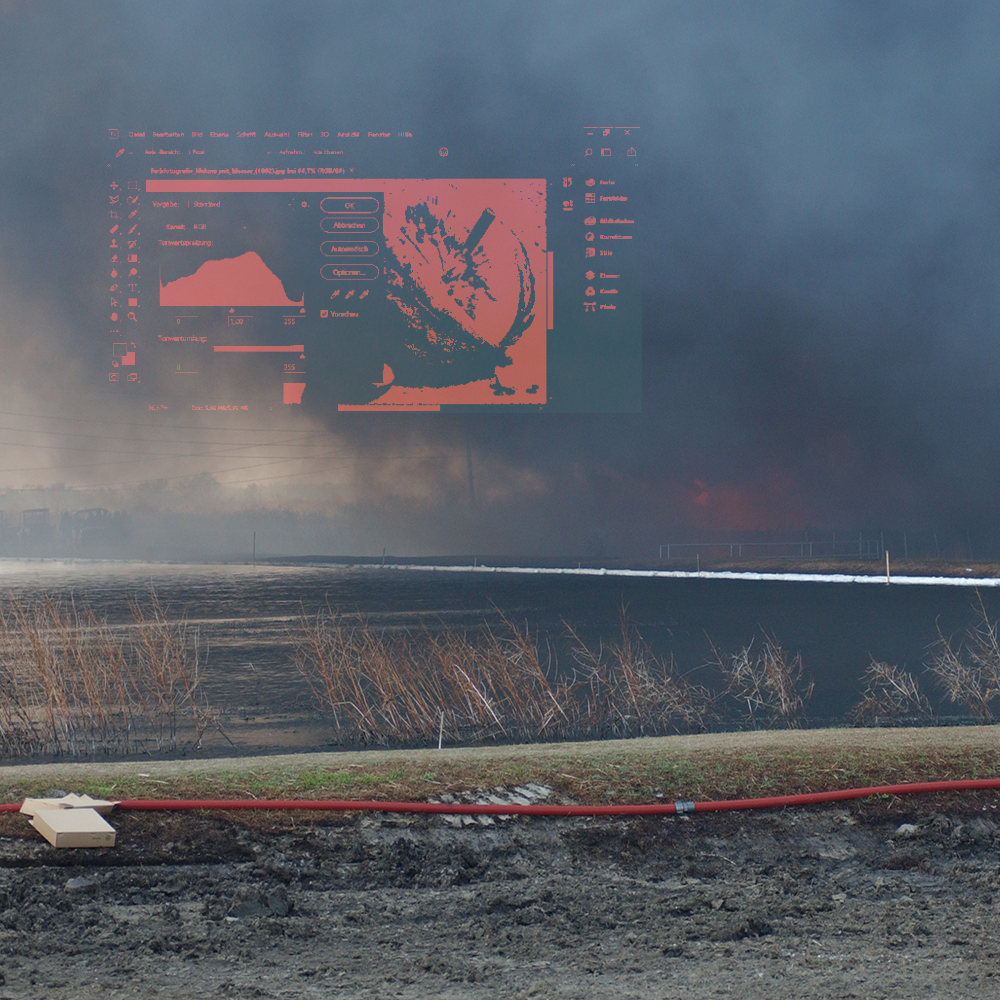
Due to its seemingly immaterial quality, it is sometimes difficult to grapple with software’s real-world effects. Without software, most contemporary infrastructure can’t function. Oil rigs and machinery may be among the most visually striking symbols of the climate crisis, but the software that is used to run them is equally important. That also means it can be used as a weapon to stop oil extraction, in a similar way to policy.
But let’s take a step back.
At its core, “open source” means sharing how software or hardware tools are built and maintained. For example, code, instructions, schematics, or parts lists can be viewed, modified, used, and iterated on by anyone. In terms of Open Source Software (OSS) this means that source code is made publicly accessible by its authors for others to use, often for free. This stands in contrast to proprietary software, like Word, or Photoshop, where source code is often kept secret or only shared in a compiled (already assembled) state.
There are a variety of open source licenses that place restrictions on how software and hardware can be distributed or modified. In terms of derivative software, broadly, there are two license categories: copy-left and permissive, which dictate how projects that modify source code can be shared or restricted. There are also Creative Commons licenses, which address copyright, and can place restrictions on whether or not your work can be used in commercial products.

Almost all software is built on other software, and some OSS libraries have become so prolific they are used in nearly every commercial project – sometimes to the point that companies might not even be aware, and why licenses potentially hold so much power. For example, the popular Python library NumPy – identified by the CSL authors as one of the 10 most commonly used OS libraries in oil extraction projects – is a widely used scientific computing package, intertwined with many other pieces of software across a variety of fields.
If libraries like NumPy changed their license, there could be a wide range of consequences that are not easily foreseen. For instance, it might disable or severely limit the reach of these commercial operations. Reporting on a discussion about the CSL among NumPy contributors, GitHub user John Preston writes that adoption of the CSL is considered too risky unless there is a demonstrated pro-climate benefit that outweighs potentially undermining the library itself and its dependents.
If the license is only adopted by some libraries, there is the concern that projects relying on now licensed code would want to find new open alternatives. If a replacement then emerged, the developer community may become more fractured, not only through taking sides on the issue, but because of the different software options being popularised. The familiarity of sets of tools, shared knowledges, is then disrupted, and what is usually seen as a beneficial comfort, for companies at least, would no longer be experienced by those working in the field.

Is Open Always Good?
Many open source advocates hold the principle of ‘openness’ as inherently good. They argue that making code, data, and methods of collection transparent and accessible democratizes knowledge and makes it possible to see behind the curtain of otherwise opaque technical entities. OS allows anyone to benefit from these insights, whether in better understanding how a specific computer programme is built, or how a damaged piece of hardware can be repaired. Software is also seen as more secure when it can be inspected by a large community of developers who can flag bugs (whether this is actually the case is contested).
Proponents of this stance usually view the act of restrictive licensing as a violation of the principles and the spirit of the OSS movement and as a slippery slope – after all, who is to say what is a ‘good’ or ‘bad’ use of open source licensed code, and on what grounds would decisions to exclude specific applications or actors be made?
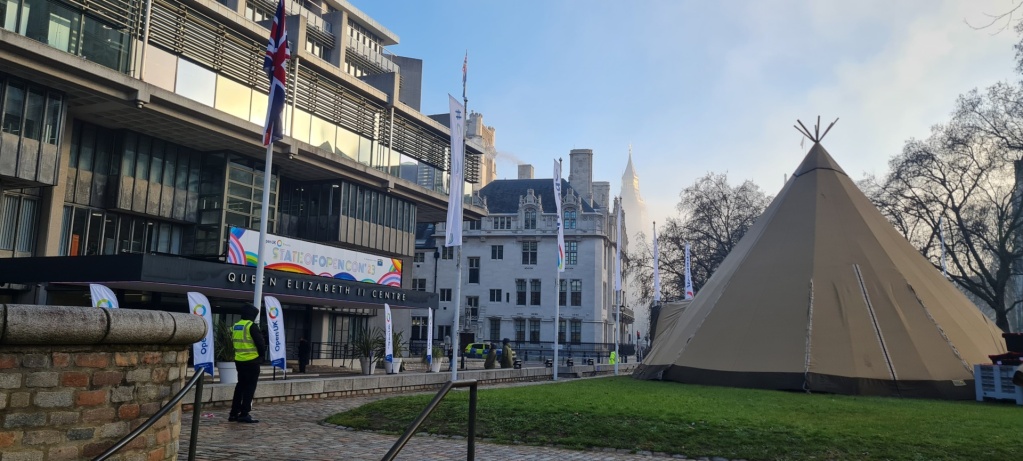
State of Open Conference 2023, By Watty62 – Own work, CC BY-SA 4.0
The official Open Source definition is maintained by a non-profit called the Open Source Initiative (OSI). It provides a set of rules that govern what it means to be open source. In recent years, there has been a lot of discussion about whether this definition should be reformed or updated. While critiques are being voiced from different positions on the political spectrum, we want to highlight a few selected initiatives that explicitly seek to bring the Open Source movement up to speed with – arguably long overdue – considerations of social justice.
At the centre of critique is the agnostic, purist stance on OS that it must not be concerned with who uses OS licensed code and for what purpose. In essence, that anyone should be free to use it however they please for it to truly be considered open source.
On the other end of the spectrum, we might find more nuanced arguments that, while still arguing for open source in general, acknowledge that one technical solution will not solve all social problems.
In an article on Medium, a writer going by the pseudonym A bee with a blog argues that a real conversation about what justice means in the open community and the digital world at large has been suppressed by the dominant ‘open’ vs ‘closed’ framing, which identifies closure as the main (or even only) problem. They write, “The open movement failed when it centered freedom over justice. It failed when it placed abstract principles above actual human lives,” calling for a different kind of politics that addresses the entanglements of software with environmental breakdown, misogyny, racism and colonialism.
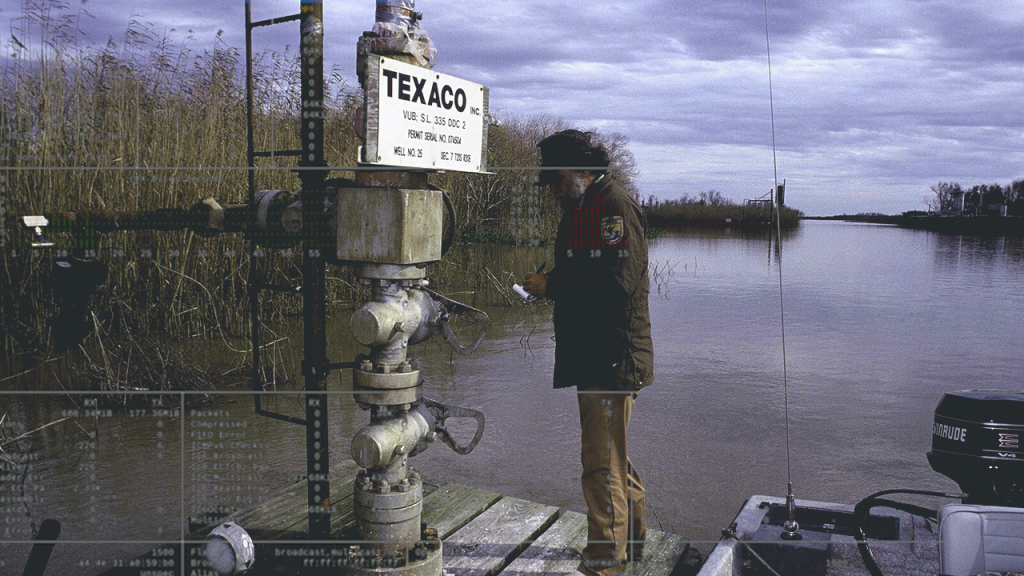
Data Sovereignty Practitioners Leading the Way
In similar fashion, the authors of the CSL take a clear stance against upholding purist interpretations of the open source principle given the urgency of addressing climate breakdown, stating “we feel that as tech workers, we should take responsibility in how our software is used”.
In fact, Indigenous data sovereignty (IDS) practitioners have long challenged the purist version of ‘openness’ in reference to data. While acknowledging that open data can be beneficial, they call attention to the risks specifically for indigenous communities, which may include biases contained in datasets and a continuation of the colonial practice of extracting knowledge from its rightful stewards. The UN Declaration on the Rights of Indigenous Peoples affirms Indigenous people’s right to govern how data about their communities, lands, and resources is collected, owned and used. Building on this declaration, IDS advocates have developed the CARE principles (Collective benefit, Authority to control, Responsibility, and Ethics). This is a framework that allows for carefully balancing openness and closure in a way that supports Indigenous innovation and self-determination.
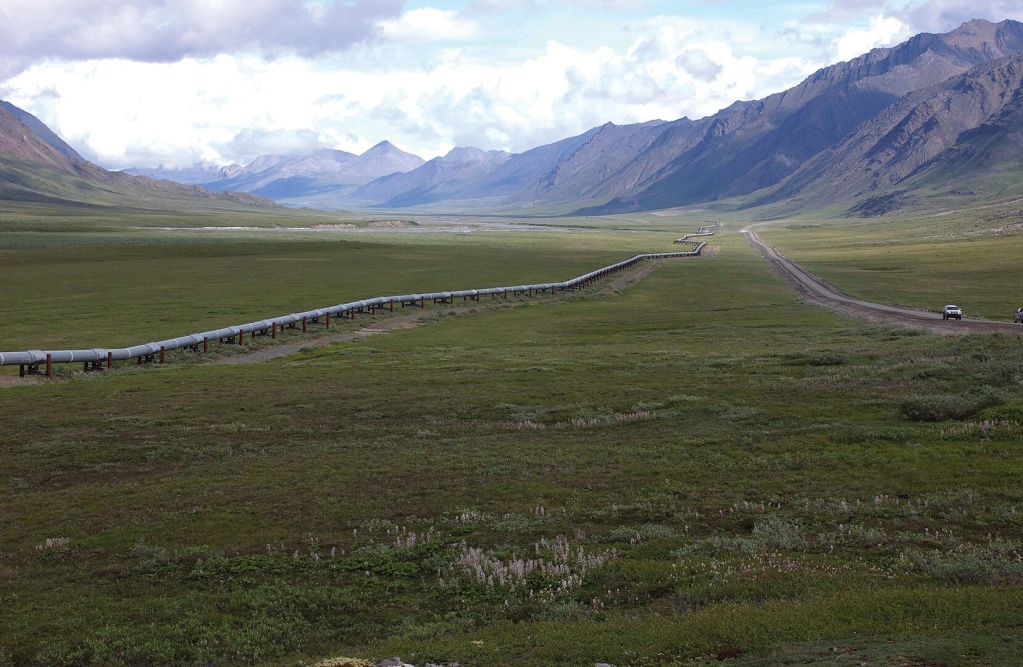
A view of the Trans-Alaska Oil Pipeline, from the northern Brooks Range, Alaska.
IDS demonstrates why it is wrong to perceive open access as always being of universal benefit to all, when in reality its effects and impacts differ across communities. As the CARE statement explains, data sharing is not only a technical problem of interoperability or accessibility, but a social one too, that needs to take into account power differences resulting from the historical and ongoing conditions of colonialism.
From Open to Ethical Source
In response to the perceived shortcomings of the canonical open source definition, the Organization for Ethical Source (OES) supports developers who want to incorporate value-driven considerations into their open source practice. In essence, this means intervening in the implicit assumption of open source neutrality, which OES says is a “flawed premise”. They write, “[t]he true measure of the success of open source is its impact— how the technologies we develop are leveraged to bring about positive social, cultural, and political change.”
Out of the OES licensure incubator has come the Hippocratic License 3.0, which mobilizes the “do no harm” principle from the medical field to acknowledge and guard against potentially harmful and abusive effects of technology. The license agreement includes ethical requirements ranging from respect for human and workers’ rights, to a duty of care for parties impacted by the licensee’s supply chain.
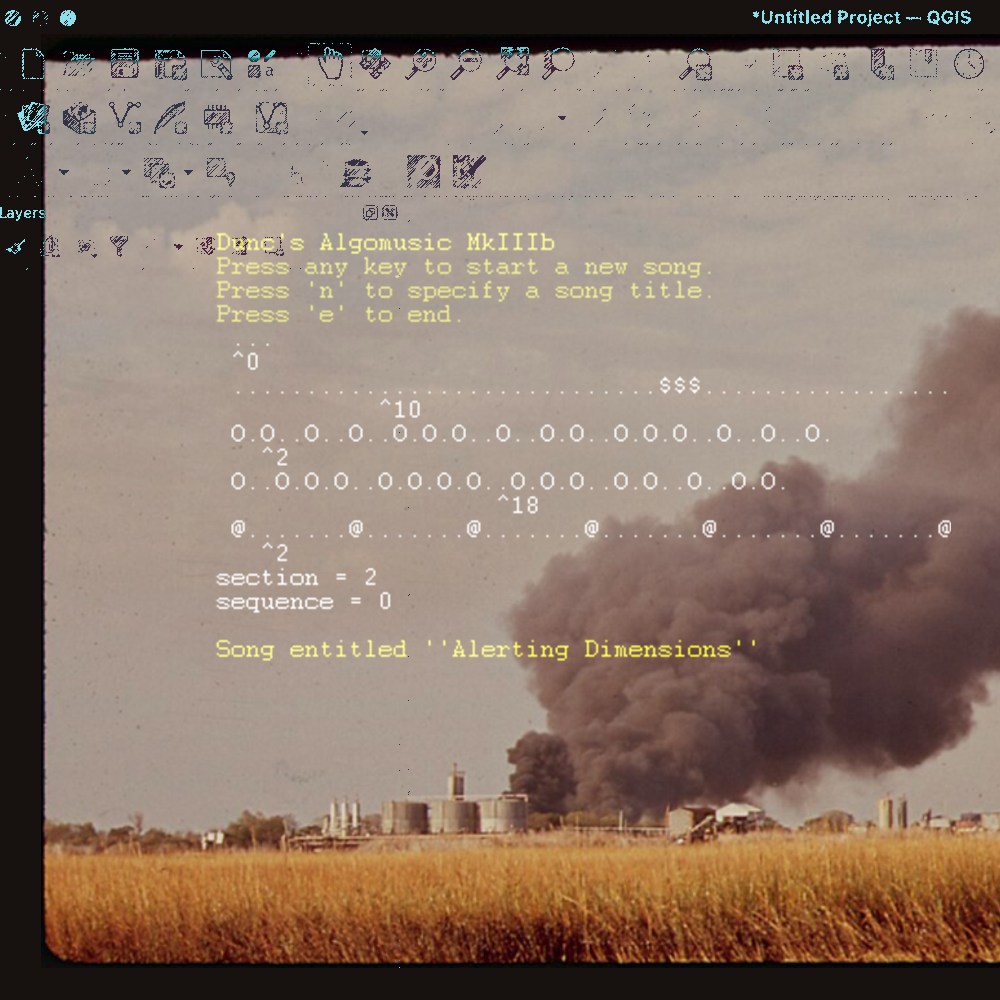
Adopters can optionally customize the Hippocratic License 3.0 by integrating specific “modules”: for instance, they can exclude military activities from the scope of the license, demand that the licensee have worker representation on their board of directors, or exclude the companies listed on the FFI Solutions Carbon Underground 200 list (the top 200 global publicly-listed coal, oil, and gas reserves owners).
Another example is the Antiracist Ethical Source License, or At The Root (ATR) created by Leland Gill, John Soto, Dawn Wages, and Sameeul Haque. This license draws on the Hippocratic License 3.0 and develops it further, with the stated aim to end “the normalized and pervasive exploitation of Black, Brown and Indigenous people in software. The only way to do this is to demand the projects we contribute to be actively anti-racist, not just in mission but in practice.”
To address the most pressing effects of racist technology on people of color specifically in the US, the license requires for instance that licensees do not interfere with anyone’s ability to vote or register to vote, or perpetuate inequality in healthcare services. The creators understand the license as a living document that will continue to evolve as it is put into practice and more widely adopted, and see it as part of the fight to actively create antiracist technology.
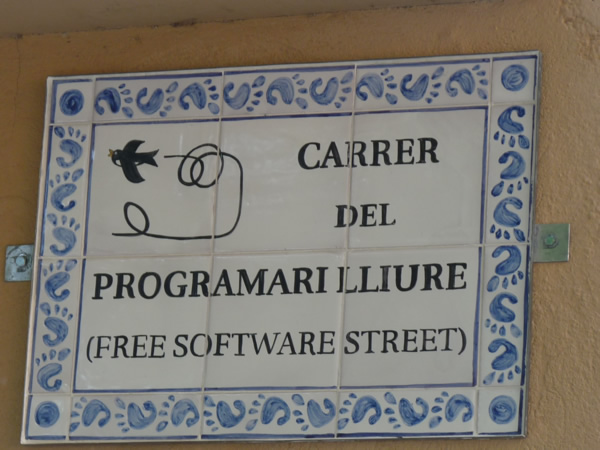
Where to Go From Here
As it stands, the agnostic stance that open source means open for everybody is further complicated by the fact that a growing share of contributions to OSS actually come from large companies, who also integrate open source into their for-profit ventures. This breaks with the stereotypical image of developers writing code that is accessible to all simply because they are ideologically committed to “free and open” principles. According to the Open Source Contributor Index, Google, Microsoft and Amazon have increased their updates of OS projects (commits) on GitHub by 300% between May 2016 and May 2022.
In terms of climate action, the entanglement of big tech with fossil fuel production is especially relevant. Microsoft, Amazon and Google all have active ongoing contracts with fossil fuel companies, including Google’s more recent one with Saudi Aramco.

Laying of the EUGAL (EU Gas Pipeline Link) in Germany, 2019, by Hanno Böck
There’s also overlap in membership in Open Source initiatives, such as the Open Group which includes fossil giants like Shell and Exxon Mobil as well as Google and Microsoft. The Open Group runs the Open Subsurface Data Universe(OSDU) platform, a “vendor-neutral” developer environment for open data used in subsurface operations launched in 2019.
The Linux Foundation, one of the key institutions in the OSS world, has a branch dedicated to developing open software solutions for the energy sector – among its members are Shell, Google and Microsoft.
Chevron is a contributing member of the Eclipse Foundation, which creates and maintains an OSS development environment to aid standardisation and automation in industrial systems.
Thus, both technology and energy companies are contributing and benefiting from open source software development. While the fossil fuel industry often greenwashes this engagement by arguing that it also benefits the development of renewable energy production, the industry is overall scaling back on climate commitments, expanding oil and gas production, and running record profits.
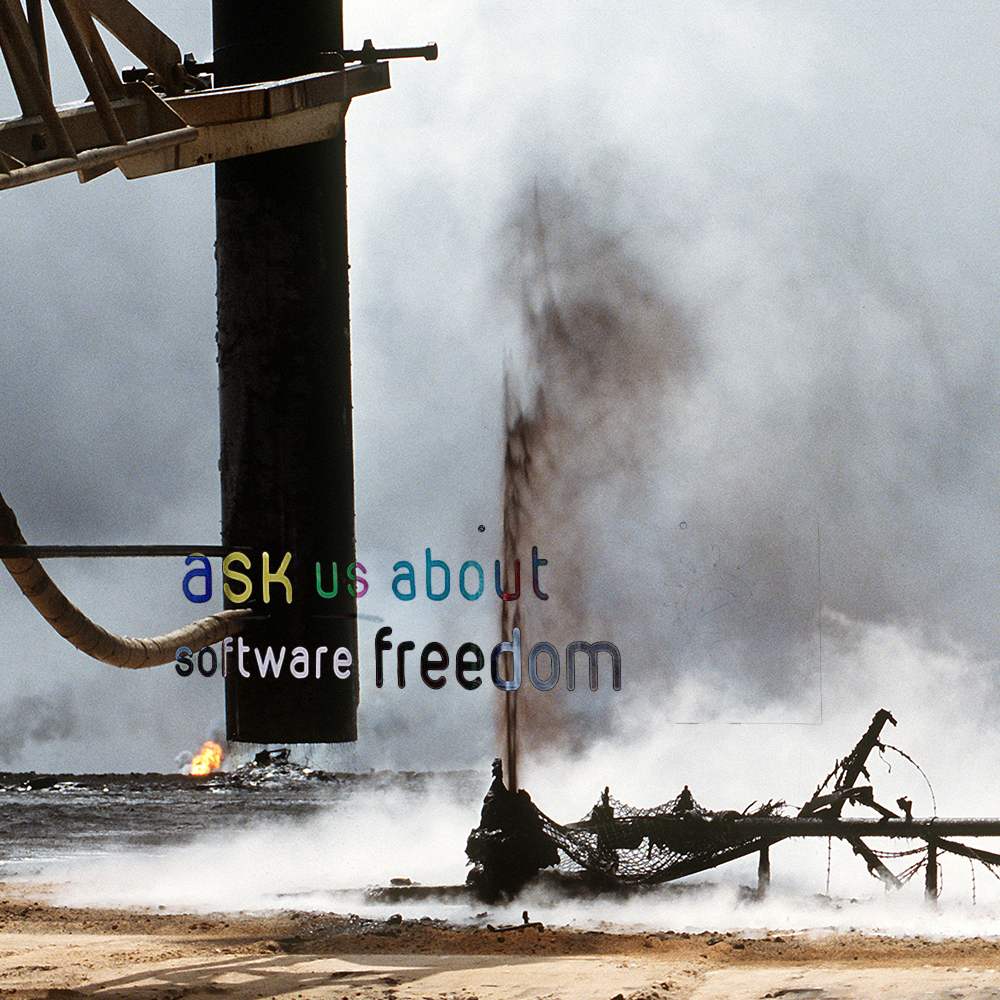
Given the different understandings and limitations of the canonical definition and the changing landscape of commercial and non-commercial use of OS, it seems to us that we are at a moment where open source is complex, and not a blanket solution for work by groups with different goals, ethical principles, and outlooks on how to evaluate what open source’s role and main contribution to society is. While many still advocate for the agnostic definition, others are pushing for change that is arguably needed, but still somewhat unclear in terms of implementation and reach.
In the end, open source is no ‘one-size-fits-all’ solution and is context dependent. If the movement that has historically been committed to knowledge democratization and access is to sustain itself, it can no longer afford to ignore the fact that ‘neutrality’ is a myth and that the impacts of open source are differentiated, especially along lines of systemic oppression and the ecological destruction that is all around us.
We are excited to see movement and growing activism in this field. Alternative propositions like the CSL and Ethical Source are inspiring interventions to rethink what it means to do open source in a world where climate breakdown is the new normal and the most vulnerable communities are, yet again, the ones most likely to suffer from their impact. Software shapes everyone’s lives in some way, whether we are aware of it or not – let’s make sure it contributes to improving, not destroying them






